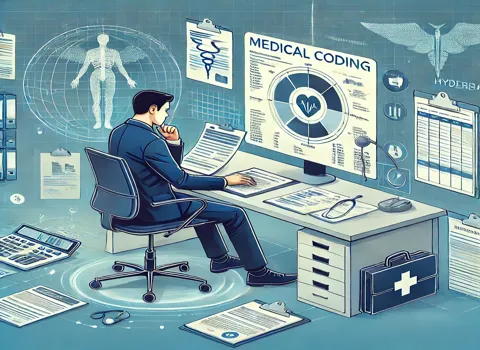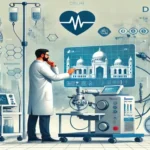Medical Coder Jobs In Hyderabad
Description
Contact Information
Frequently Asked Questions (FAQs)
What are the key challenges faced by a medical coder in day-to-day work?
Medical coders often deal with complex medical records, varying documentation styles, and evolving coding regulations. Ensuring accuracy while meeting deadlines and staying compliant with industry standards can be challenging. However, continuous learning and collaboration with healthcare providers help overcome these obstacles.
How does medical coding contribute to the overall healthcare system?
Medical coding is essential for managing healthcare operations effectively by ensuring accurate billing, insurance claims processing, and data integrity. It helps healthcare providers receive proper reimbursements and supports medical research and statistical analysis for public health improvements.
What career growth opportunities are available for medical coders?
Medical coders can advance to senior coding roles and auditing positions or specialize in areas like inpatient, outpatient, or risk adjustment coding. With experience and certifications, they can also transition into roles such as coding trainers, compliance officers, or healthcare data analysts.
What are the most commonly used coding systems, and how do they differ?
The most commonly used coding systems include ICD-10-CM (International Classification of Diseases), CPT (Current Procedural Terminology), and HCPCS (Healthcare Common Procedure Coding System). Each serves a different purpose—ICD-10-CM is used for diagnoses, CPT is used for medical procedures, and HCPCS is used for services, supplies, and equipment.
How does a medical coder stay updated with the latest coding guidelines and industry changes?
Medical coders can stay updated by attending workshops, taking continuing education courses, joining professional organizations like AAPC or AHIMA, and regularly reviewing updates from regulatory bodies. Many employers also provide training to keep coders informed about industry changes.



